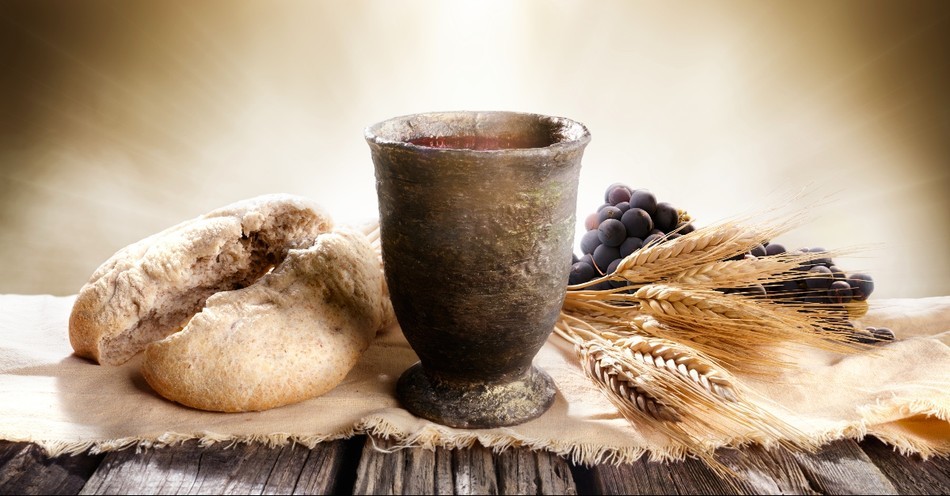And He withdrew from them about a stone’s throw, and knelt down and prayed, saying, “Father, if you are willing, remove this cup from me. Nevertheless, not my will, by yours, be done.” And there appeared to him an angel from heaven, strengthening him. And being in agony, he prayed more earnestly; and his sweat became like great drops of blood falling down to the ground (Luke 22:41-44, ESV).
It is an aspect of our faith in Jesus Christ that is not discussed often. It may not be mentioned or taught because it is unpleasant and even incomprehensible to consider what Christ suffered on our behalf.
It is even likely that some have not heard this ministered in such verbiage, but the Bible speaks of it numerous times.
No matter what time of year that we read of this in Scripture, whether before or after celebrating the resurrection of our glorious Savior, Jesus Christ, it is applicable.
It is worthy of discussion and worthy of thanksgiving to God as we have been saved from it. It is the wrath of God.
Have you ever read this passage or the passage in Matthew 26 regarding this same moment where Jesus is in the Garden of Gethsemane, and you inadvertently scan over the reference to the cup that Jesus asked to be removed?
It was only last year that I truly began to think upon this topic of the wrath of God, having heard it rarely ministered in years past. I had read Luke 22 and Matthew 26 before, glossing over the mentioned cup.
I find myself being more thoughtful in my reading of Scripture these days and wanting to understand the Word of God more clearly and in-depth. What was in the cup? I had not given it much thought until then.
Whatever was in the cup was enough to send an angel to minister to Jesus and to strengthen Him. Whatever was in the cup was enough to bring such agony and heightened prayer that His sweat turned to blood.
There is no way for us as mere human beings to fathom what was in that cup and what Jesus Christ endured and suffered on our behalf. It is clear from Scripture that the cup Jesus Christ drank was the cup of God’s wrath to be poured out for sin.
To the Dregs He Drank
We can find the cup of God’s wrath mentioned in Psalm 75:7-8, “But it is God who executes judgment, putting down one and lifting up another. For in the hand of the LORD there is a cup with foaming wine, well mixed, and he pours out from it, and all the wicked of the earth shall drain it down to the dregs.”
Isaiah 51:17 speaks of Jerusalem drinking the cup of wrath in the hand of God, stating that they have drunk it to the dregs. Psalm 11:6 says, “Let him rain coals on the wicked; fire and sulfur and a scorching wind shall be the portion of their cup.”
We understand dregs to be the sediment subsiding to the bottom of the glass or vessel. This helps us visualize what occurred on the cross.
When Jesus was in the Garden of Gethsemane asking for this cup to pass from Him, we can understand a little more that this cup was the cup of God’s wrath, and Jesus was going to drink it to the dregs.
This brought great agony to Jesus. The entirety of it would be poured out upon Him. J. Oswald Sanders eloquently says this, “Jesus drank a cup of wrath without mercy that we might drink a cup of mercy without wrath.”
To bear our sin upon Him brought great sorrow. Isaiah 53 is a well-known passage and Messianic prophecy of the Suffering Servant, and it tells us that He was a man well acquainted with sorrow or grief (Isaiah 53:3).
He bore our griefs and carried our sorrows, and He was afflicted and stricken by God (Isaiah 53:4). He is the spotless lamb without sin, and it was the will of the Lord to crush him (Isaiah 53:10).
There are times that I personally cannot help but be emotionally moved in thinking that He drank the cup I rightfully deserved. My Savior who knew no sin became sin.
I am reminded of the passage that speaks of the astonishment of the people when they saw Him lifted up, and how His appearance was so marred and beyond human semblance and the children of mankind (Isaiah 52:14).
When we think of our Savior upon that cross, we recognize in this prophecy the imagery displayed relating to our sin. Praise God that by His wounds we are healed of the sickness of sin (Isaiah 53:5; 1 Peter 2:24)!
The Cup of Salvation
As believers in Christ, we rejoice in our salvation that can only come through faith alone in Jesus Christ. While we were still sinners, Christ died for us, and His blood has justified us. We have been saved by the wrath of God because of Jesus Christ (Romans 5:8-9).
We have been given the ministry of reconciliation to God the Father. We are adopted as co-heirs with Christ and brought in as citizens of heaven.
We have been given a new nature and the promise of eternal life. There is no cup of wrath for us to drink because He drank it to the dregs for us.
Psalm 116 is a beautiful psalm that speaks of the mercy and the love of God. It speaks of His salvation. Verse 13 says, “I will lift up the cup of salvation and call on the name of the Lord.” The cup of salvation.
When our faith rests in Christ Jesus to save us, we can lift up the cup of salvation and call upon His Name. He is worthy to be praised and to be lifted high. There are a number of topics that are not discussed, it seems, in our day and time.
The wrath of God tends to be one of them because of the gravity and the sobriety of its nature. However, the wrath of God should not be far from our understanding, nor should it be reserved for reflection once a year.
This is part of the Gospel of Jesus Christ. This is inescapable when surveying the cross of Christ. We must not forget from what we have been saved. We must not forget by Whom we were saved, and we can thank God that it is finished!
For further reading:
Why Did Jesus Pray ‘Let This Cup Pass from Me’?
What Is the Medical Account of the Crucifixion?
Is Isaiah 53 ‘The Suffering Servant’ a Prophecy about Jesus?
Why Did Jesus Have to Suffer So Badly
What Is the Biblical Understanding of the Wrath of God?
What Does it Mean ‘The Wages of Sin Is Death’?
What Does it Mean That Our Citizenship is in Heaven?
Photo Credit: ©iStock/Getty Images Plus/RomoloTavani





